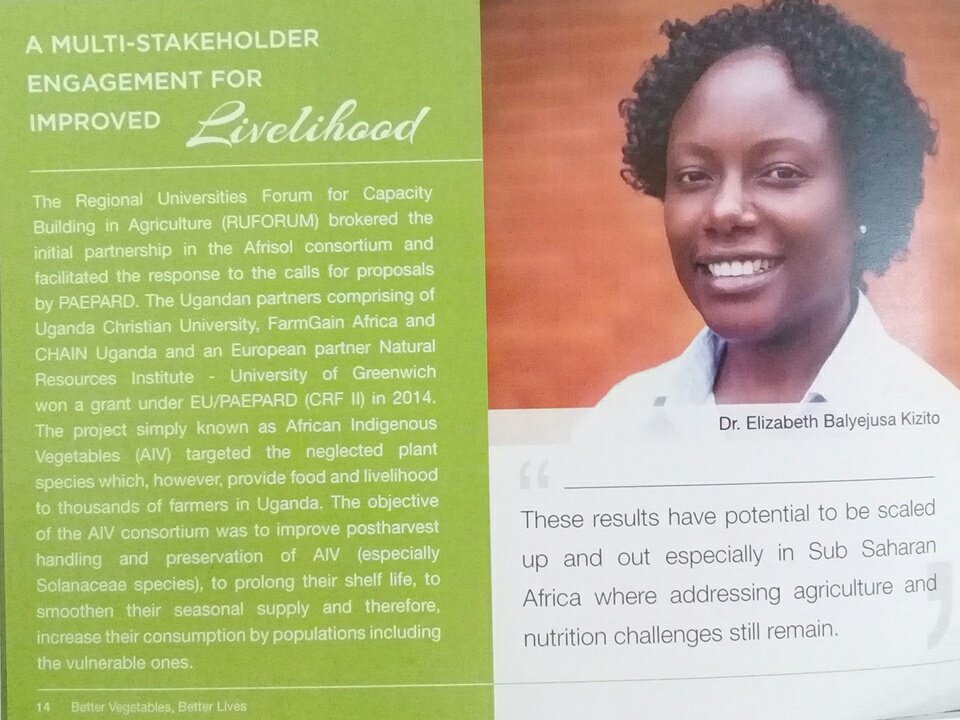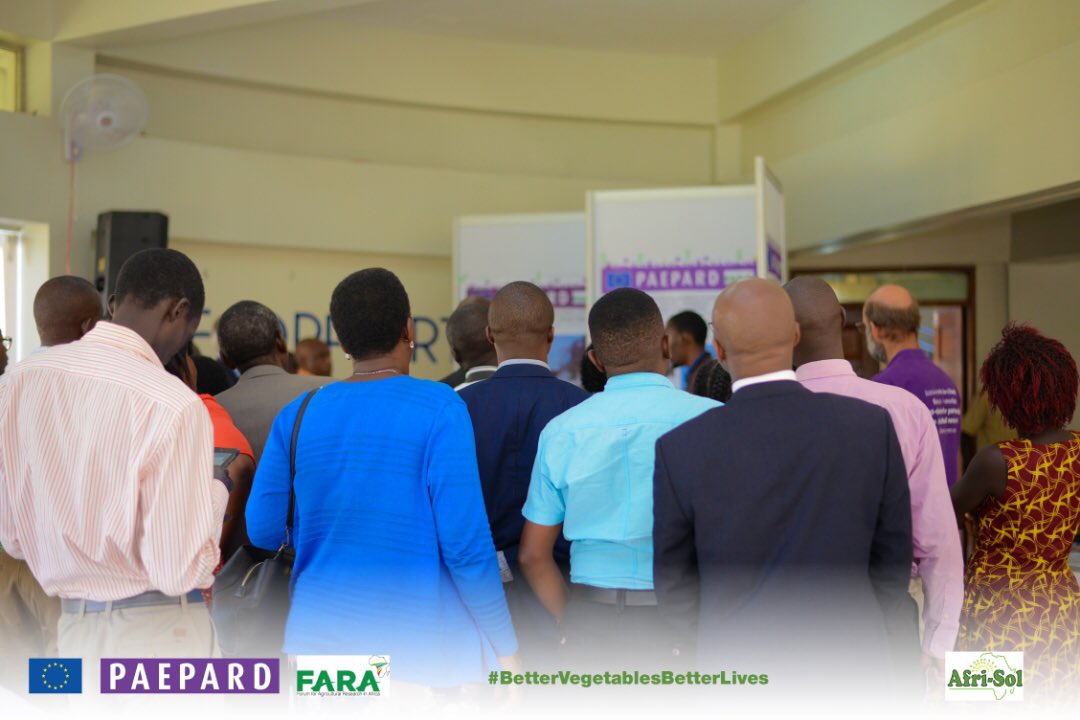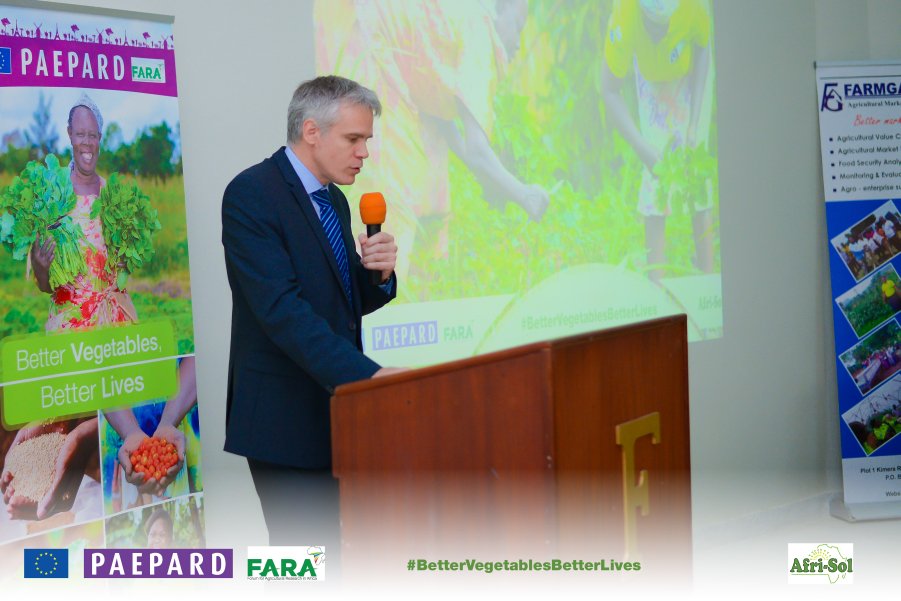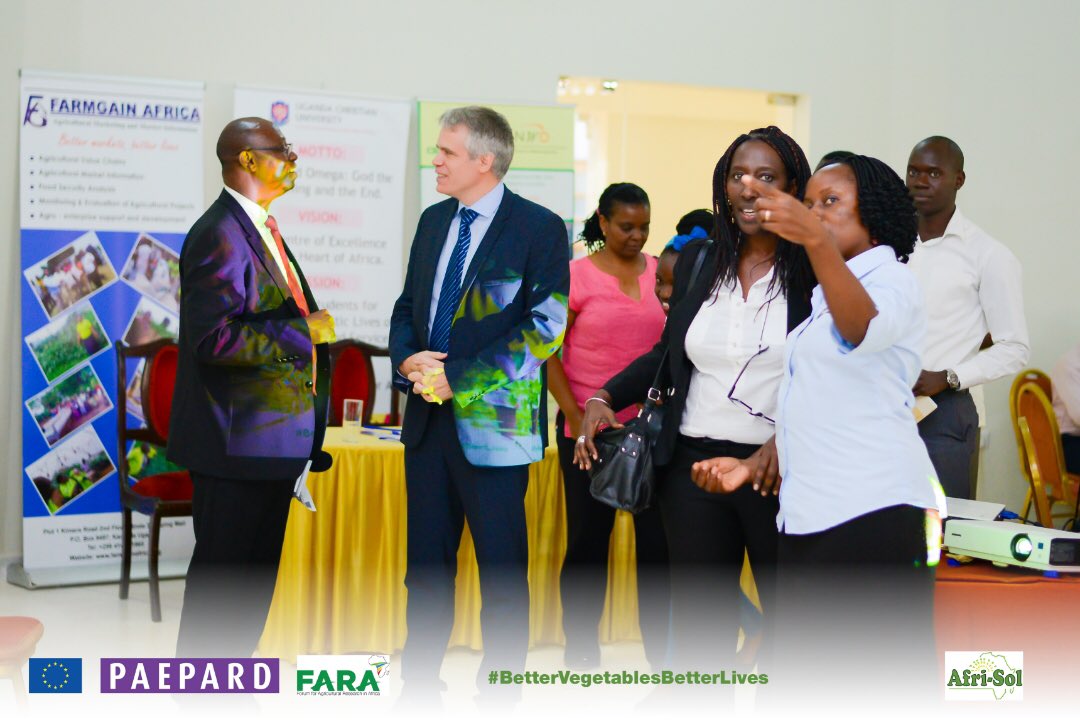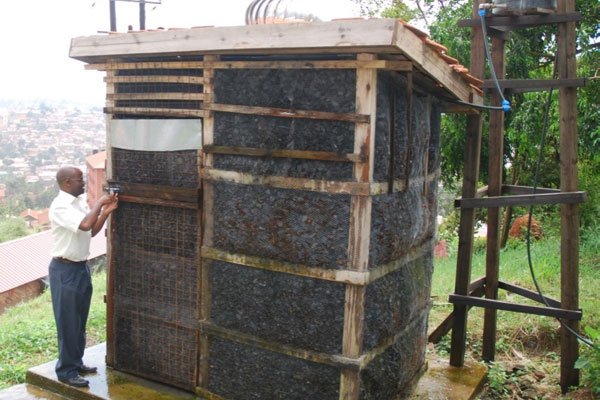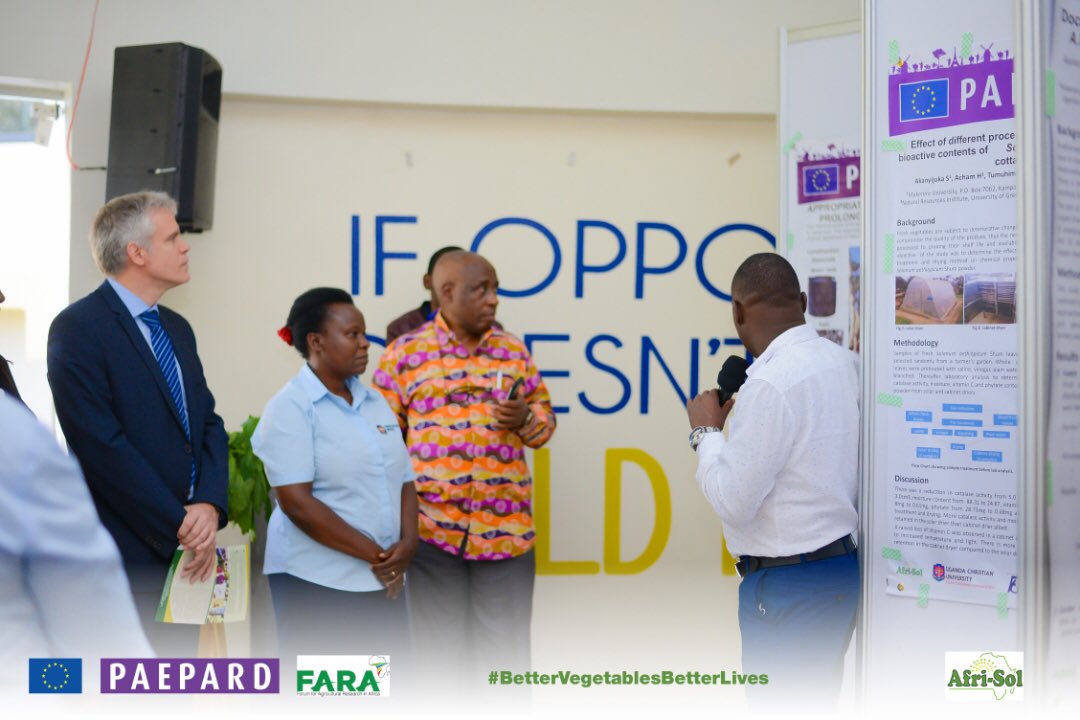3 August 2018. Webinar. Learning and Development Africa. sign
up for the webinar
15-17 August
2018. Arc Api Irene
Centurion, South Africa. Smart Farming Tech Symposium ‘Innovation and Tech use for
betterAgriculture’
15 to18 August 2018, Haile Resort Hawassa, Ethiopia. International Nutrition and Food Industries Conference hosted by the Academic Center of Excellence for Human Nutrition, Hawassa University. Theme “Partnership for Food and Nutrition Training and Sustainable Development”
15 to18 August 2018, Haile Resort Hawassa, Ethiopia. International Nutrition and Food Industries Conference hosted by the Academic Center of Excellence for Human Nutrition, Hawassa University. Theme “Partnership for Food and Nutrition Training and Sustainable Development”
20-21 August
2018. Kigali, Rwanda. Youth in
Agriculture as a Solid Solution to ending Hunger and Poverty in Africa
20-24 August 2018.
Nairobi, Kenya. 14th Edition of the African Dairy Conference
26-31 August 2018. World Water Week 2018
26-31 August 2018. World Water Week 2018
27-29
August 2018. Durban
(ICC), South Africa. BIO Africa
Convention 2018
30
- 31 August 2018. Gent-Zwijnaarde, Belgium. IPBO
conference 2018: “Scientific innovation for a
sustainable development of African agriculture”.
30-31 August 2018. Wageningen. The Netherlands. Towards Zero Hunger: Partnerships for Impact
30-31 August 2018. Wageningen. The Netherlands. Towards Zero Hunger: Partnerships for Impact
4 September 2018: AFAAS Webinar Series Scaling
up proven technologies and practices of postharvest management in Africa” @ 12:00-14:00 GMT
5 – 6 September 2018. University
of Hohenheim, Stuttgart, Germany. Congress FOOD2030
Towards Sustainable Food Systems
12 Sptember 2018. Londen. Transforming Africa's Agriculture Value Chains Through Mechanization
12 Sptember 2018. Londen. Transforming Africa's Agriculture Value Chains Through Mechanization
17-19 September 2018. Gent,
Belgium. Tropen Tag Ghent 2018. Annual interdisciplinary conference on Research in
tropical and subtropical agriculture, Natural Resource Management and Rural Development.
Conference theme: Global food security and food safety: The role of
universities
19-21 September 2018. Uppsala, Sweden. Engaging
Africa Diaspora in Knowledge Transfer through Networking.
20-21 September, 2018, Nairobi-Kenya. 1st Africa Environment Partnership Platform (AEPP)
20-21 September, 2018, Nairobi-Kenya. 1st Africa Environment Partnership Platform (AEPP)
24 – 26 September 2018. Al-Azhar International
Conference Centre, Cairo, Egypt. DATAD-R VIII workshop for Librarians, library
IT support staff of University libraries and others. Register at https://www.research.net/r/DATEGY18
or email Edith Laari at elaari@aau.org
24-26 September
2018. Khartoum
Sudan. 1 Inter-Regional
Smart Agriculture Forum (ISAF)
25-27 September 2018. Purdue University, West
Lafayette, Indiana, USA. Innovations in
Agriculture: Scaling Up Conference.
1-2 October 2018. Maritim Hotel, Cologne
(Germany): Revolution in
Food and Biomass Production; High-tech strategy for a
sustainable biomass supply
2-4 October 2018 Dakar, Senegal. Third PACA Partnership Platform Meeting. Theme: “Scaling-up Country-led Approaches for Sustainable Aflatoxin Mitigation in Africa ”
2-4 October 2018 Dakar, Senegal. Third PACA Partnership Platform Meeting. Theme: “Scaling-up Country-led Approaches for Sustainable Aflatoxin Mitigation in Africa ”
1-5 October 2018. Addis, Ethiopia.
The 8th Africa Nutritional Epidemiology Conference
3-4 October 2018. University of Ghana, Accra,
Ghana. WACCI International
Conference on Food and Nutrition Security in Africa.
4-5 October
2018. Harare, Zimbabwe. Bindura University 1st International Conference on Food Security and Climate
7-11 October 2018 in
Berlin, Germany. IWCSPP 2018 - 12th
International Working Conference for Stored Product Protection.
10-12
October 2018.
Stellenbosch, South Africa. Science Forum 2018 (SF18)
15-19 October 2018.
Accra, Ghana. 7th All
African Conference on Animal Agriculture (7th AACAA)
15-19 October 2018. Rome. CFS 45 - Committee on World Food Security
15-17 October 2018. Pretoria. 2nd International Conference on Food Safety and Security
15-19 October 2018. Rome. CFS 45 - Committee on World Food Security
15-17 October 2018. Pretoria. 2nd International Conference on Food Safety and Security
16 October 2018. Brussels Begium. World Food Day at the European Parliament. On the occasion of World Food Day 2018,FAO and the European Commission will organize an event hosted by the MEP Mr. Paolo De Castro at the European Parliament. The registration link will be provided early September. This event will consist of a two-hour debate preceded by a networking lunch. It will provide feedback and build on the findings of the recent 2nd FOOD 2030 High Level Event that took place in Plovdiv under the auspices of the Bulgarian Presidency from 14-15 June 2018.
16 - 17 October 2018. Nairobi. Nutrition Africa Investor Forum. The Forum is being organised by The Global Alliance for Improved Nutrition (GAIN) in partnership with Royal DSM and the SUN Business Network.
16 - 17 October 2018. Nairobi. Nutrition Africa Investor Forum. The Forum is being organised by The Global Alliance for Improved Nutrition (GAIN) in partnership with Royal DSM and the SUN Business Network.
22-26 October 2018. Nairobi,
Kenya. The
Sixth African Higher Education Week and RUFORUM Biennial Conference.
24
- 26 September 2018. Al-Azhar
International Conference Centre, Egypt. DATAD-R VIII workshop. ‘’The workshop is to strengthen the
capacity of African University Libraries to manage and disseminate the research
output from their faculty and students widely for greater impact. It will
afford an opportunity for participants to share their experience and learn
about new trends in electronic content management.’’
7 - 9 November 2018. Esterhazy Palace, Eisenstadt, Austria. 6th International Conference
on Organic Agriculture Sciences (ICOAS)
19-23 November, 2018. Abuja, Nigeria. IFDC workshop: Bringing Balanced Fertilizers to Smallholder Farmers in Africa
21-23 November 2018. Rome. FAO International Symposium on Agricultural Innovation for Family Farmers
21-23 November 2018. Rome. FAO International Symposium on Agricultural Innovation for Family Farmers
22-23 November 2018. Salvador, Bahia/Brazil. 6th Brazil Africa Forum.
Youth Empowerment: Transformation to Achieve Sustainable Transformation
26 - 30 novembre 2018. Dakar, Senegal. International workshop on the dairy value chain in Africa
30 November- 4 December 2018: Addis Ababa, Ethiopia. APIMONDIA SYMPOSIUM 2018; Role of Bees in Food Production.
2-7 December. 2018. Khartoum, Sudan. Young Scientists Conference. Genomics and Human Health in Africa
30 November- 4 December 2018: Addis Ababa, Ethiopia. APIMONDIA SYMPOSIUM 2018; Role of Bees in Food Production.
2-7 December. 2018. Khartoum, Sudan. Young Scientists Conference. Genomics and Human Health in Africa
10-12 December 2018. Center of Congress Rennes, France. DIVERSIFOOD Final Congress ‘Cultivating Diversity and Food Quality’
10-12 January 2019. International
Conference on Aquatic Resource and Aquaculture for Sustainable Development,
ICAR-AQUAS-2019.
12-14 February, 2019 Arusha, Tanzania. ECHO East Africa Biannual Symposium on Sustainable Agriculture and Appropriate Technologies
25-29 March 2019. Washington, DC, USA, at World Bank headquarters. 20th Annual Conference on Land and Poverty.
30 April - 3 May 2019. Kampala, Uganda ICT4D Conference25-29 March 2019. Washington, DC, USA, at World Bank headquarters. 20th Annual Conference on Land and Poverty.
18-20 June 2019. Nairobi. 1st All Africa Congress on Synthetic Pesticides, Environment, Human and Animal Health




